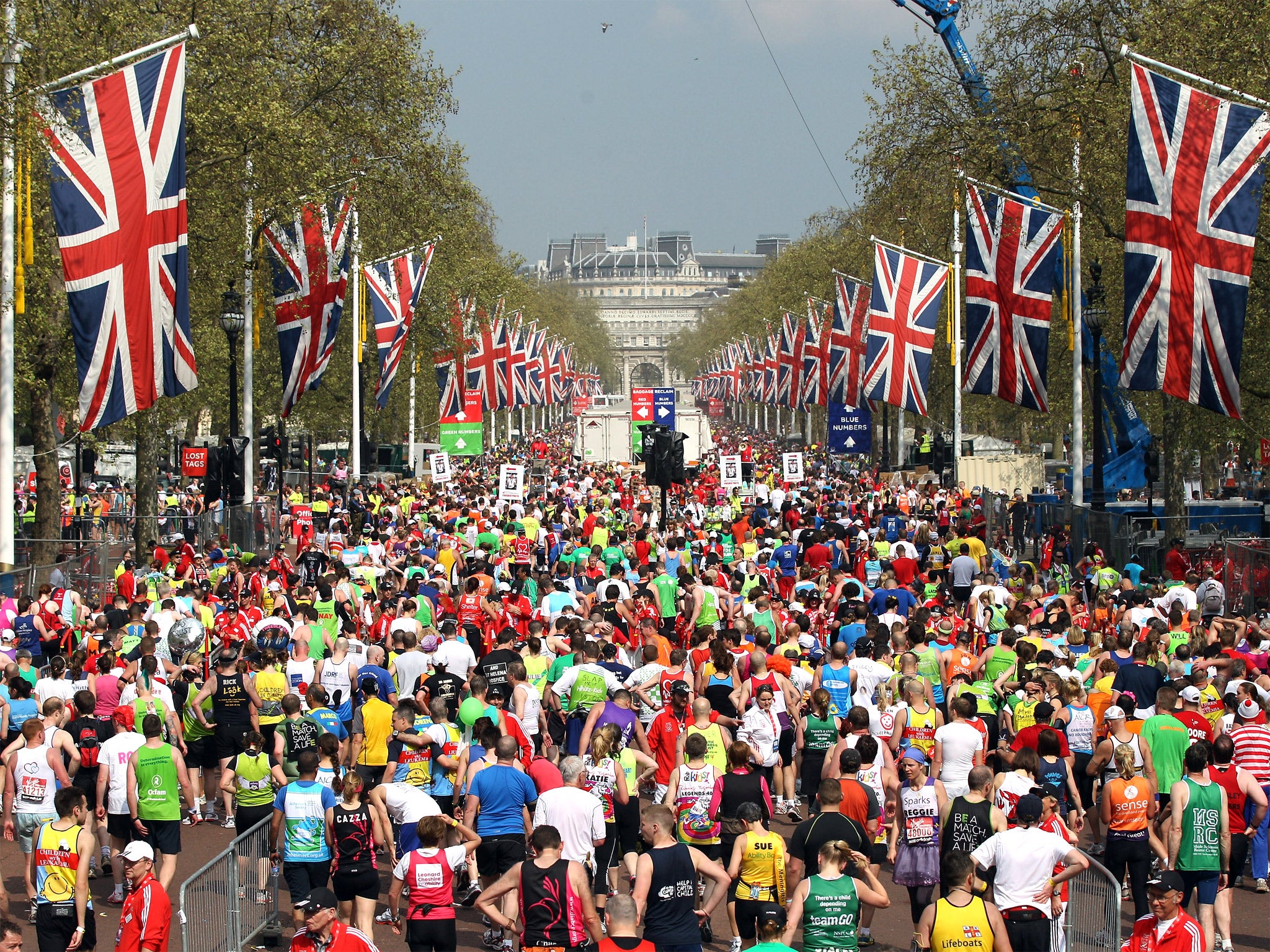James Lawton: Boston bombings resurrect the nightmare that sport is sadly an easy target for terrorism
Sport is supposed to be charmed, insulated from the worst of real life

As America is once again traumatised by the random horrors of terrorism, as tragic and gruesome details are piled one on top of the other, sport does not need telling its own fate.
It is returned to its perilous status as maybe the softest – and most rewarding – of targets.
Sport is supposed to be charmed, insulated from the worst possibilities of real life but it is for this very reason that it is so vulnerable – and will always be so.
If you hit sport, you strike at one of the most comfortable places the world likes to think it inhabits.
Amid all of the anguished reactions along the finishing straight of the Boston Marathon on Monday, maybe the most pervasive was the one on all those faces which said, "Not here, not now, it just cannot be".
But, of course, it could and the images of the Boston outrage now have to be added to those of the Munich Olympics in 1972, when 11 Israeli athletes and coaches were slaughtered by the Palestinian Black September group, and those in the city of Atlanta in 1996 when a lone fanatic set off a bomb that killed two and injured more than a 100 and brought the Games to the brink of abandonment.
Boston's disbelief and fear was Atlanta's 17 years ago when the bomb went off in the Olympic Park and a whole city feared what might happen next.
Kimberly Krautter, who was part of the Atlanta crisis management team and is now a leading security consultant, says, "Whatever you do, and however much you understand the need for security, there is always the feeling that it just cannot happen to you. It seems so unnatural to attack a great sports event. In Atlanta we took every measure we could, but it is just something you cannot really expect or, in the end, be prepared for."
Boston has resurrected the nightmare which lurked just below the surface throughout the joyous Olympics of London last summer. It has provided a sickeningly re-focused picture of the impact of such an unnatural intrusion into something designed to cross all borders and political divisions peaceably.
More than 100 nations were represented in Boston – the most famous of the marathons staged by great cities, including London and New York – and this, of course, guaranteed more worldwide oxygen for the force of terror.
In 1997 a few code words of the IRA were sufficient to bring chaos and panic to the Grand National. The race was postponed for two days. The Aintree course was abandoned to all but police and security men. When you returned you found half-eaten meals and so many other signs of sudden flight. Compared to Munich and Atlanta and Boston, Aintree was blessedly unscathed. But it felt a terrible power for disruption.
In Munich the official reaction was extraordinary in that it was part bemusement, part denial.
For the International Olympic committee it was almost as though the massacre had not happened. Nothing, said the American plutocrat president of the IOC, Avery Brundage, could stop the march of the Games.
Many leading athletes, it has to be said, took a similar line, but one who did not, the Canadian world record-holding high jumper Debbie Brill, recalls, "So many people were saying, 'Look, we have trained all our lives for this – what good will it do if the Games are stopped?' On the last day of the Games I went with some friends and fellow athletes up to a roof in the Olympic Village and then we saw balloons filling the sky over the Olympic Stadium. I thought, 'Oh God, this is unbelievable.'"
Now there is no such suspension of reality here in America – or any corner of sport.
The most competitive of the runners had long passed the finish line when the two bombs exploded but no one questioned the fact that the meaning of one of the big days of the sporting calendar had been obliterated.
It could not be otherwise when you considered the fate of the eight-year-old boy who was killed moments after hugging his father at the finish line and whose sister lost a leg and whose mother was rushed to the operating room for brain surgery.
Sport has lost its innocence for many reasons, but this was another – and one over which it simply has no control.
Subscribe to Independent Premium to bookmark this article
Want to bookmark your favourite articles and stories to read or reference later? Start your Independent Premium subscription today.

Join our commenting forum
Join thought-provoking conversations, follow other Independent readers and see their replies